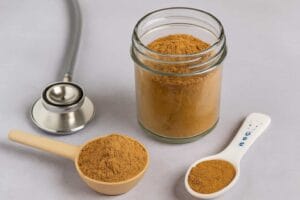Have you ever wondered why some natural remedies capture our attention when managing chronic conditions like diabetes? Among the many herbal options, Chaga tea for diabetes has been gaining quiet but growing interest. It’s not just because of its rich, earthy flavor or its striking appearance; there’s something about this mushroom brew that feels like a warm hug for the body’s complex balance. But does it really hold promise for those navigating the ups and downs of blood sugar levels? Let’s explore this together.
What Is Chaga Tea and Why Is It Special?
Chaga is a type of fungus that grows primarily on birch trees in cold climates. For centuries, it has been used in traditional medicine, particularly in Siberia and parts of Northern Europe, prized for its antioxidant properties and potential health benefits. When brewed into tea, Chaga produces a deep amber infusion with a slightly bitter, vanilla-like taste.
What makes Chaga tea stand out is its impressive profile of bioactive compounds—think polysaccharides, betulinic acid, and a wealth of antioxidants. These components are believed to support immune function, reduce inflammation, and protect cells from oxidative stress. For anyone managing diabetes, these effects could be particularly meaningful.
Before diving deeper, if you’re curious about other natural ways to boost your energy and stamina through mushrooms, you might find this comparison of mushroom gummies vs. cordyceps quite insightful.
How Could Chaga Tea Help with Diabetes?
Diabetes management is a balancing act, involving careful attention to blood sugar levels, diet, and overall health. The idea of integrating a natural supplement like Chaga tea for diabetes might feel appealing, as it offers a gentle and holistic way to support your body’s natural balance. But what does the science say?
- Blood Sugar Regulation: Some studies suggest that Chaga may influence glucose metabolism. Its polysaccharides could help improve insulin sensitivity, meaning your body might use insulin more effectively.
- Anti-Inflammatory Effects: Chronic inflammation is a hallmark of diabetes and its complications. Chaga’s anti-inflammatory compounds may help reduce this burden.
- Oxidative Stress Reduction: Diabetes often increases oxidative stress, damaging cells and organs. The antioxidants in Chaga tea can neutralize free radicals, potentially protecting your body from this damage.
It’s important to note that while these findings are promising, most research is still in early stages, often involving animal models or lab studies rather than large human trials. So, Chaga tea should complement, not replace, your existing diabetes care plan.
Preparing and Enjoying Chaga Tea
There’s something soothing about brewing your own cup of Chaga tea for diabetes, especially when it’s something as unique as Chaga. The process is simple but requires patience:
- Start with chunks or powder of dried Chaga mushroom.
- Simmer gently in water for at least an hour—some prefer even longer to extract the full spectrum of nutrients.
- Strain the tea to remove solids.
- Enjoy it plain or with a splash of honey or cinnamon for added flavor and health benefits.
Because Chaga tea for diabetes is caffeine-free, it can be enjoyed any time of day. You might notice a subtle earthy sweetness and a smooth finish that feels grounding.
Is Chaga Tea Safe for People with Diabetes?
Safety is always a top priority, especially when managing a condition like diabetes. Chaga tea is generally considered safe for most people, but there are a few things to keep in mind:
- Blood Thinning: Chaga has natural blood-thinning properties, so if you’re on anticoagulant medication, consult your healthcare provider.
- Blood Sugar Monitoring: Since Chaga might affect blood sugar, it’s wise to monitor your levels closely when you start drinking it.
- Allergic Reactions: Although rare, some people might experience allergies or digestive upset.
Always discuss with your doctor before adding new supplements to your routine, especially if you’re taking medications or have other health concerns. It’s always wise to ensure that Chaga tea for diabetes fits safely within your personal care plan and complements your existing treatment naturally.
Comparing Chaga to Other Medicinal Mushrooms for Diabetes
Chaga isn’t the only mushroom stirring interest in the wellness community. For cognitive health, for example, many turn to Lion’s Mane. If you’re curious about how these mushrooms stack up, you might enjoy this detailed look at mushroom gummies vs. Lion’s Mane mushroom. Still, when it comes to overall wellness and natural balance, Chaga tea for diabetes stands out for its powerful adaptogenic and restorative qualities.
When it comes to diabetes, however, Chaga’s unique antioxidant and anti-inflammatory profile gives it a distinctive place. While Lion’s Mane is often celebrated for brain support, Chaga’s strength lies in its potential to support metabolic health and reduce oxidative stress, which are crucial for diabetes management.
Quick Reference: Nutritional and Bioactive Compounds in Chaga Tea
| Compound | Potential Benefit |
|---|---|
| Polysaccharides | Supports immune function, may improve insulin sensitivity |
| Betulinic Acid | Anti-inflammatory and antiviral properties |
| Superoxide Dismutase (SOD) | Powerful antioxidant that combats oxidative stress |
| Melanin | Protects cells from UV and oxidative damage |
At the end of the day, exploring natural options like Chaga tea for diabetes is about finding gentle ways to support your body’s journey. It’s a reminder that sometimes, the simplest rituals—like sipping a warm cup of tea—can bring moments of calm and care amidst the complexity of managing a chronic condition. What truly matters is listening to your body and making choices that nourish both your health and your spirit.
F.A.Q
Can Chaga tea lower blood sugar levels?
While some preliminary studies suggest that Chaga tea may help regulate blood sugar by improving insulin sensitivity, more extensive human research is needed to confirm these effects. It’s best used as a complementary approach alongside your prescribed diabetes management plan.
Is it safe to drink Chaga tea daily if I have diabetes?
Generally, Chaga tea is safe for daily consumption, but if you have diabetes, it’s important to monitor your blood sugar levels closely. Also, consult your healthcare provider, especially if you’re on blood-thinning medications or other treatments.
How does Chaga tea compare to other mushroom teas for diabetes?
Chaga tea is notable for its high antioxidant content and anti-inflammatory properties, which can be particularly beneficial for diabetes. While other mushrooms like Reishi also offer health benefits, Chaga’s unique compounds may provide a distinct metabolic advantage.
What are the anti-diabetic mechanisms of Chaga mushroom
Recent research published in the International Journal of Molecular Sciences explored the anti-diabetic mechanisms of Chaga mushroom (Inonotus obliquus) using advanced methods such as LC–MS, network pharmacology, and molecular docking. The study identified several bioactive compounds that may help improve insulin sensitivity, regulate glucose metabolism, and restore glucose homeostasis. These findings suggest that Chaga could be a promising natural aid for managing diabetes and its complications. Read the full PubMed article Elucidating the Anti-Diabetic Mechanisms of Mushroom Chaga
Can Chaga tea interact with diabetes medications?
Yes, because Chaga tea might affect blood sugar and has blood-thinning properties, it can potentially interact with diabetes medications or anticoagulants. Always discuss with your doctor before incorporating Chaga tea into your routine. For more on natural supplements and bone health, you might find this article on Reishi mushroom for supporting bone health helpful.



